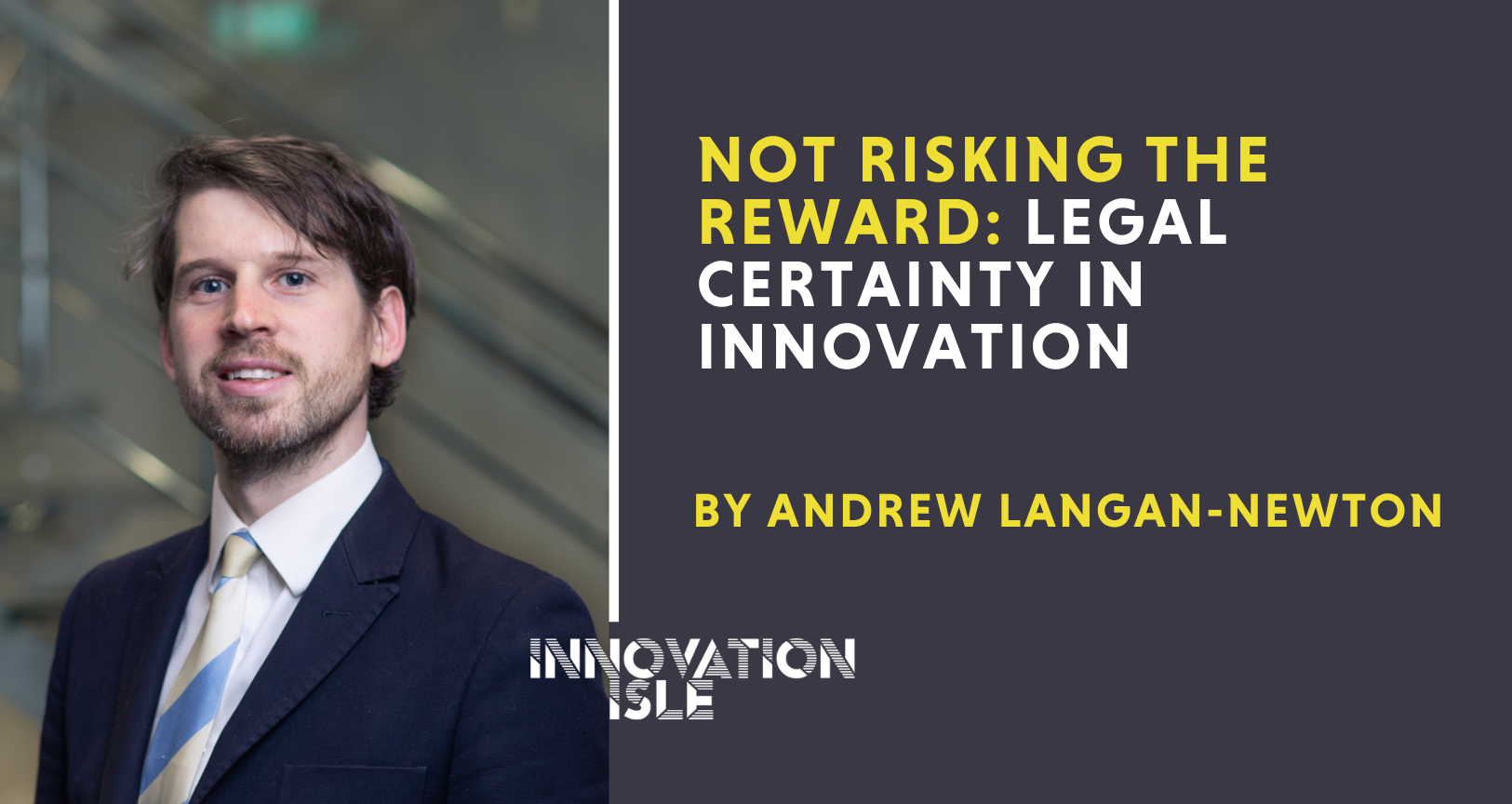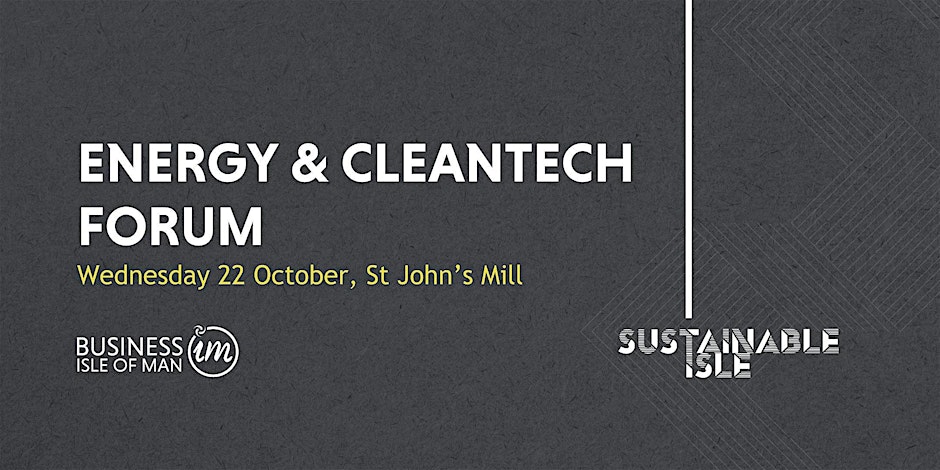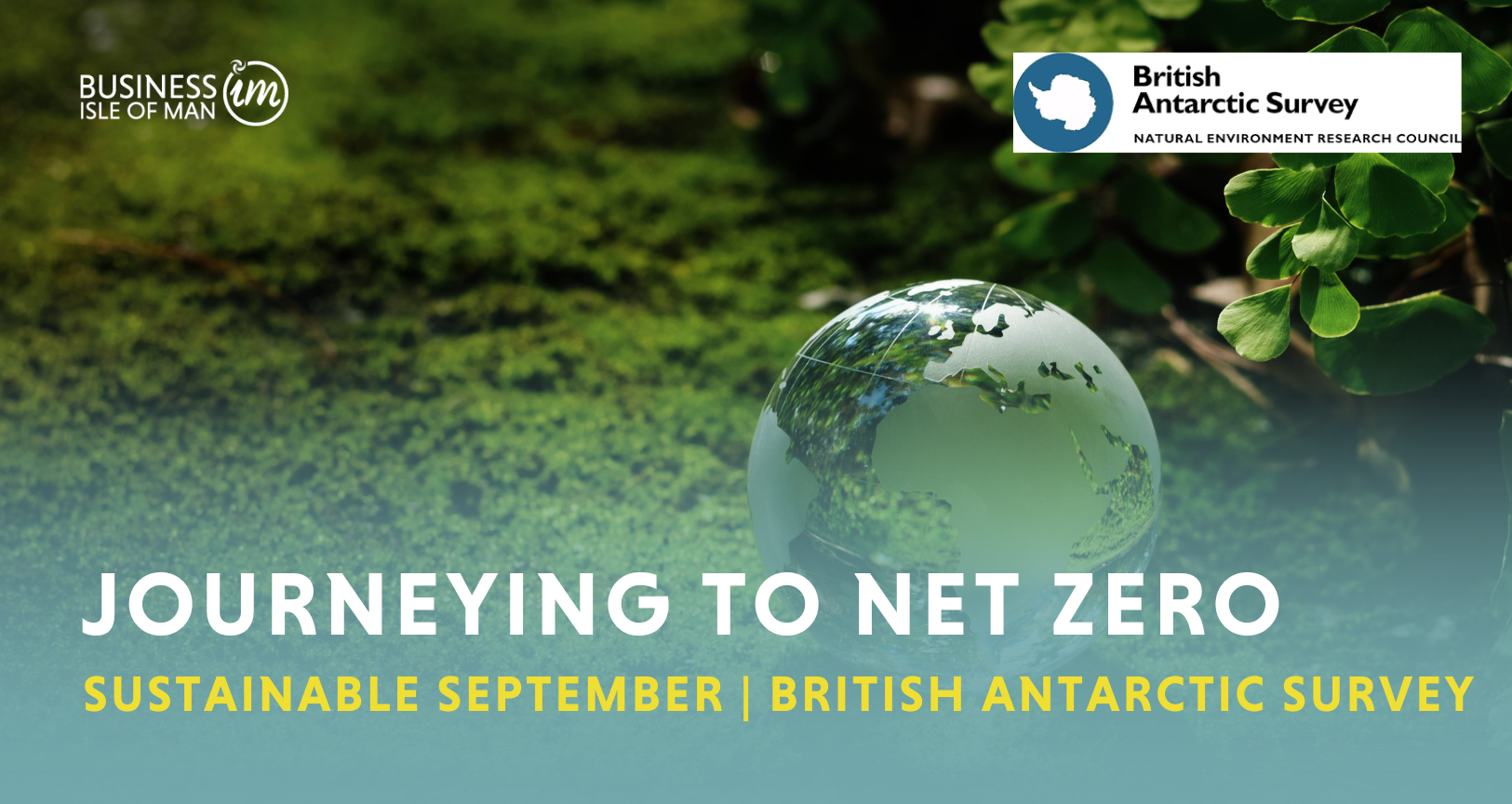Not Risking the Reward: Legal Certainty in Innovation
16 June 2025

In his lecture on the rule of law to the Oxford Union in July 2014, former First Deemster of the Isle of Man, David Doyle CBE noted that a legal system that provides access to courts and certainty in protecting property and enforcing contracts, underpins an environment of confidence for entrepreneurs.
This is where risk taking, entrepreneurship and innovation can flourish.
The Isle of Man has a long history of an independent judiciary, with advanced legal and court systems to foster an environment of innovation. But whilst legal rights can be protected, entrepreneurs and innovators need to take appropriate precautions in ensuring the protection of their intellectual property rights when obtaining assistance at the embryonic stage of any idea.
In this article, consultant advocate Andrew Langan-Newton at Keystone Law and mentor to Earthscope in the 2025 Isle of Man Innovation Challenge, explores considerations for intellectual property rights for early-stage innovators.
What are Intellectual Property Rights?
Intellectual property (“IP”) is an umbrella term which is used to describe a range of legal rights that attach to certain types of information and ideas. Common examples include patents, copyright, trade marks, and design rights.
Entrepreneurs and innovators need to be aware of different IP rights to ensure that they protect what they create, maximise their competitive position and avoid infringing the IP rights of others.
Whilst Isle of Man law protects IP rights in a similar way to some other adjacent jurisdictions, IP rights are jurisdictionally specific and separate consideration is required for other jurisdictions.
Copyright as an IP Right
Copyright may be the most recognised of IP rights, which automatically arises (without registration) to protect the particular expression or form of an idea. In doing so, it does not protect the abstract idea itself, which may require separate IP protection under design rights, patent protection and / or trademarks.
The primary purpose of copyright law is to protect and reward authors for the creation of original works, where the author has given independent effort to create the work. It can legally exist in (amongst other things) original literary works, including computer code. Therefore, it can play an important role in the protection of software created by entrepreneurs.
In terms of generating IP rights in copyright, the owner of the right is generally the person that created the work. In cases where multiple parties contribute, there can be joint ownership and ownership can be shared in defined percentages.
In the England & Wales claim in Martin v Kogan, it was decided that Ms Kogan was entitled to a 20% share of the copyright of a screenplay for her contributions to its production, which included (while Mr Martin would “hold the pen”) ideas on “characters, feeling, main events and key musical content.” Therefore, collaboration can take place in many forms and it was noted that “in deciding whether there is a collaboration [for Copyright purposes], it can never be enough simply to ask who did the writing”.
Clarifying and Protecting Copyright Rights
It is a common mistake to believe that, if you have paid for the work, you will automatically own the associated copyright.
Rather, the contractor providing services (which could be a paid or voluntary person or company assisting in the development of your idea) could be the owner (in part or in whole) of the copyright, unless it is expressly transferred in writing to you as the commissioner of the provision of services / production of the work.
An example is the England & Wales case of Clearsprings Management v Businesslinx which concerned the ownership of copyright in software. The agreement for services made no express provision for the ownership of copyright in the software and the court refused to grant a copyright in favour of the claimant who had originally commissioned the software developer to design and develop the database.
Therefore, as an entrepreneur, to protect your copyright, proactive steps should be considered from an early stage, including: -
- Auditing your idea in an attempt to identify what parts of the idea may be IP that would need protection.
- Documenting the creation of your idea. Evidence of authorship and of the creative process involved is important in establishing the subsistence and ownership of copyright.
- Reviewing any contracts relevant to the development and production of your idea and whether they accommodate for any IP generated.
- Reviewing any relationships with individuals or businesses that have assisted in the development of your idea that are not subject to a written contract.
- Whilst it is generally (but not exclusively) the case that IP created by an employee will be accrue to the employer, reviewing employment contracts to consider inserting an express employment contract clause accommodating for IP created.
- Obtaining legal advice on the types of IP that may arise in your idea and how they may be protected (particularly for circumstances where there is no written contract in place or contracts that do not accommodate for IP protection).
This article is for general information purposes only and does not constitute legal or professional advice. It should not be used as a substitute for legal advice relating to your particular circumstances. Please note that the law may have changed since the date of this article.





